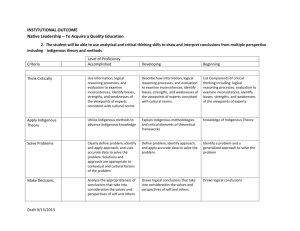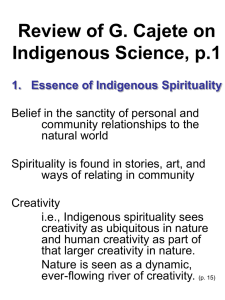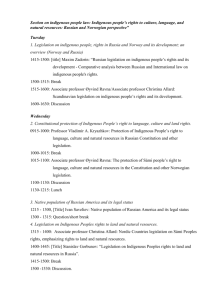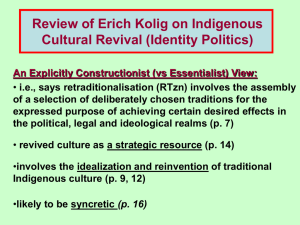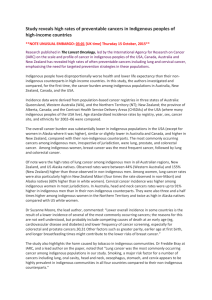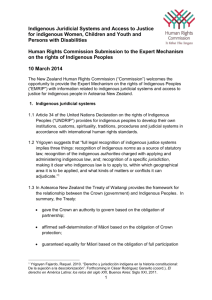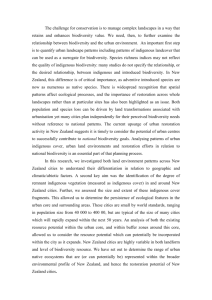Abstract and biography
advertisement
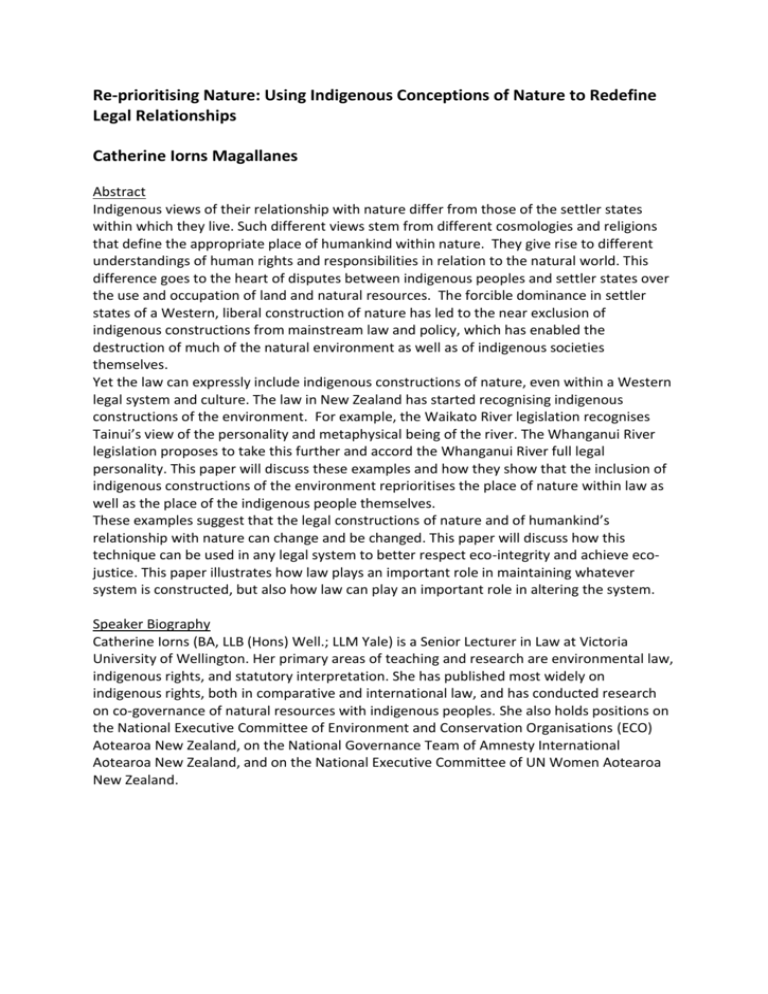
Re-prioritising Nature: Using Indigenous Conceptions of Nature to Redefine Legal Relationships Catherine Iorns Magallanes Abstract Indigenous views of their relationship with nature differ from those of the settler states within which they live. Such different views stem from different cosmologies and religions that define the appropriate place of humankind within nature. They give rise to different understandings of human rights and responsibilities in relation to the natural world. This difference goes to the heart of disputes between indigenous peoples and settler states over the use and occupation of land and natural resources. The forcible dominance in settler states of a Western, liberal construction of nature has led to the near exclusion of indigenous constructions from mainstream law and policy, which has enabled the destruction of much of the natural environment as well as of indigenous societies themselves. Yet the law can expressly include indigenous constructions of nature, even within a Western legal system and culture. The law in New Zealand has started recognising indigenous constructions of the environment. For example, the Waikato River legislation recognises Tainui’s view of the personality and metaphysical being of the river. The Whanganui River legislation proposes to take this further and accord the Whanganui River full legal personality. This paper will discuss these examples and how they show that the inclusion of indigenous constructions of the environment reprioritises the place of nature within law as well as the place of the indigenous people themselves. These examples suggest that the legal constructions of nature and of humankind’s relationship with nature can change and be changed. This paper will discuss how this technique can be used in any legal system to better respect eco-integrity and achieve ecojustice. This paper illustrates how law plays an important role in maintaining whatever system is constructed, but also how law can play an important role in altering the system. Speaker Biography Catherine Iorns (BA, LLB (Hons) Well.; LLM Yale) is a Senior Lecturer in Law at Victoria University of Wellington. Her primary areas of teaching and research are environmental law, indigenous rights, and statutory interpretation. She has published most widely on indigenous rights, both in comparative and international law, and has conducted research on co-governance of natural resources with indigenous peoples. She also holds positions on the National Executive Committee of Environment and Conservation Organisations (ECO) Aotearoa New Zealand, on the National Governance Team of Amnesty International Aotearoa New Zealand, and on the National Executive Committee of UN Women Aotearoa New Zealand.



